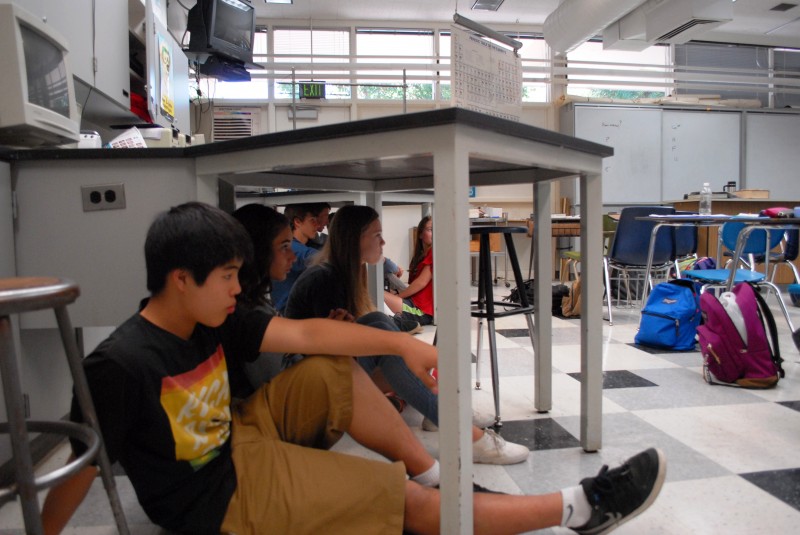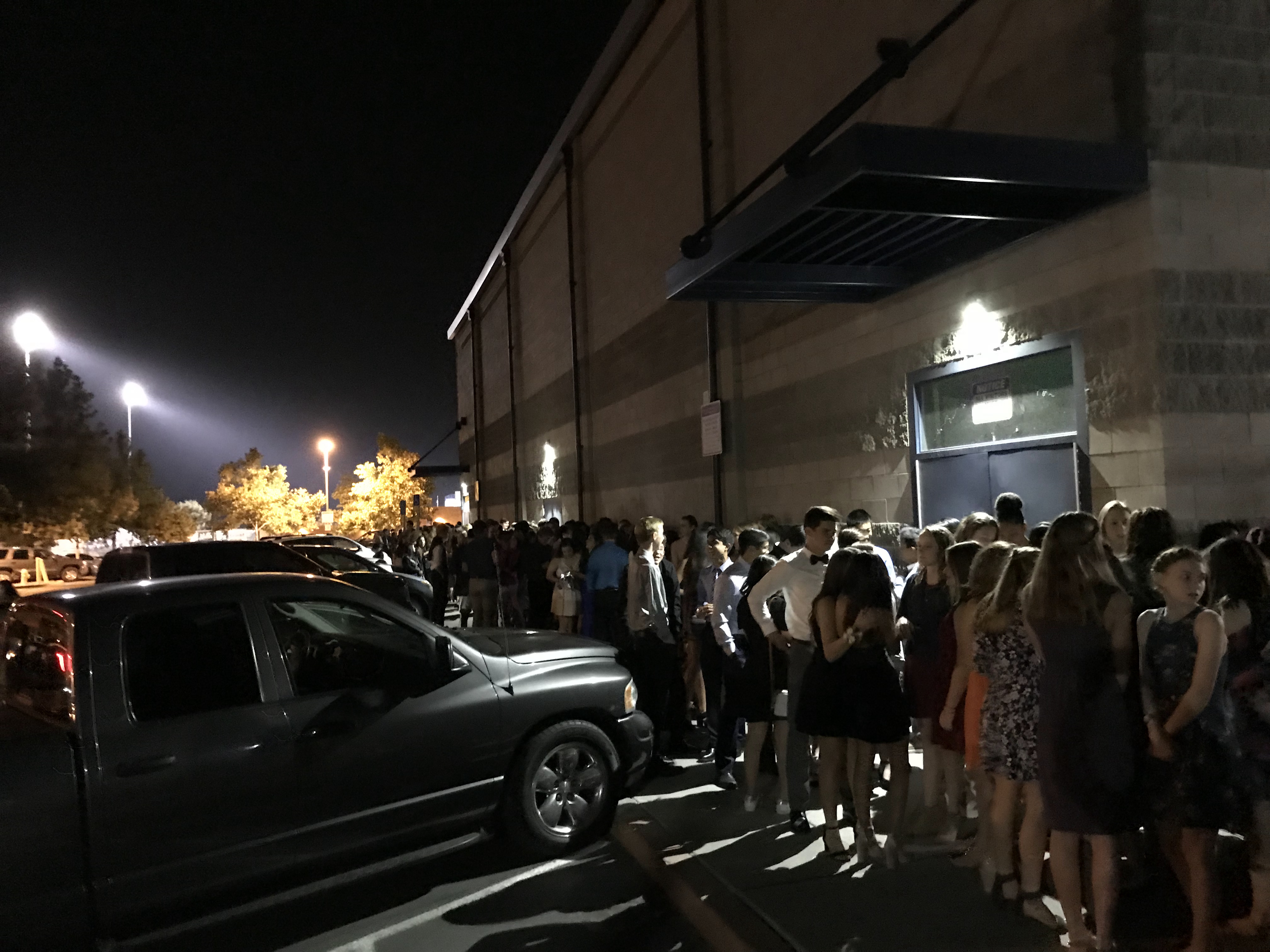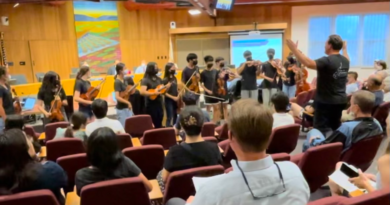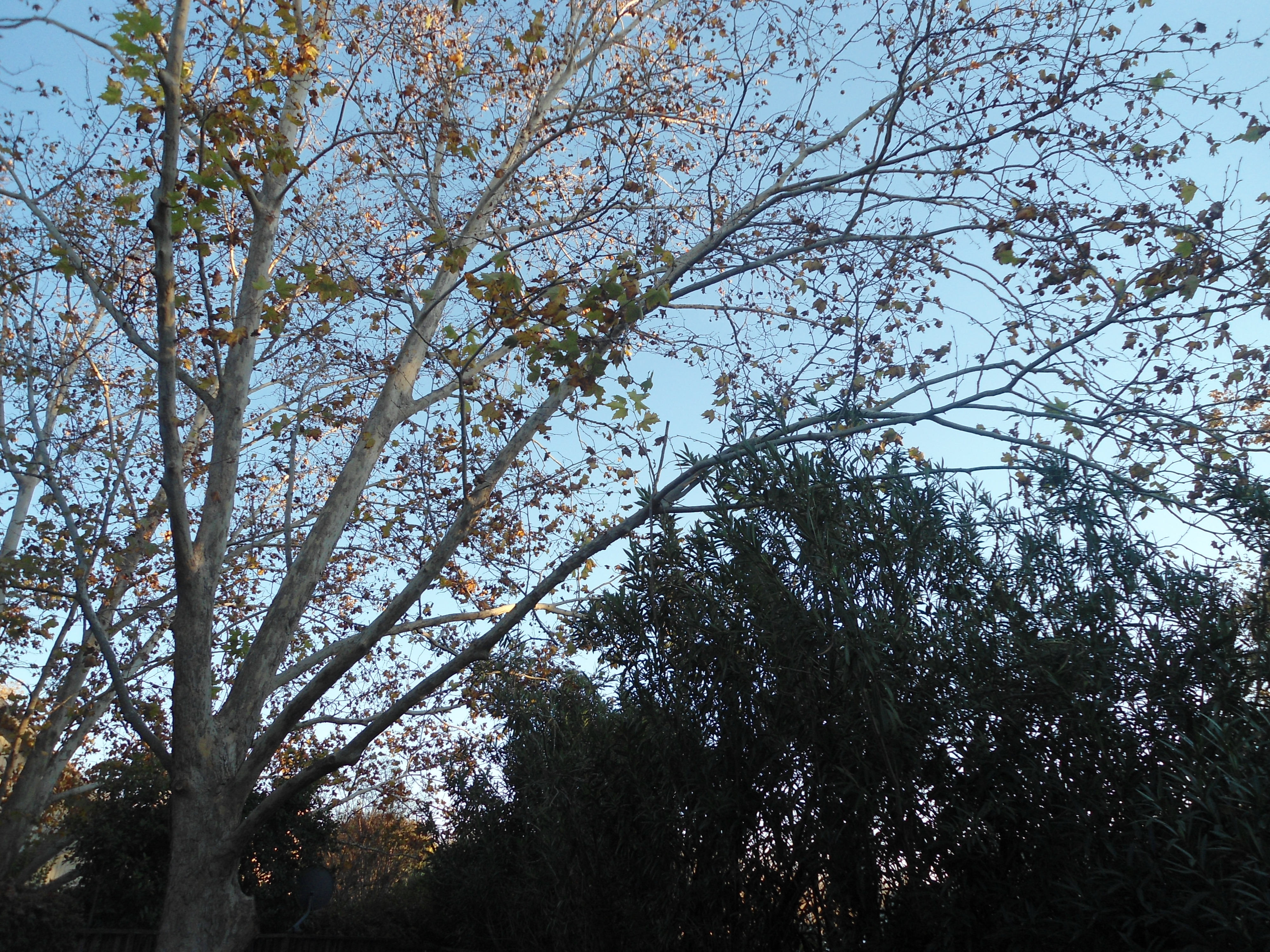Students practice safety week

By Abby Shade,
HUB Staff Writer–
Sleepy-eyed teens jumped to attention as the shrill fire drill interrupted teachers mid-sentence. Welcome to Safety Week; a week of crawling under desks, filing out of classrooms, and running “off-campus.”
The week of Sept. 30 – Oct. 4 is the first of the two weeks dedicated to practicing emergency drills. Each day is assigned a different drill; evacuation, shelter in place, earthquake, teacher down, and dynamic drill.
Incidents over the past year, such as the Sandy Hook shooting in 2012 and the BB gun scare in February 2013, make safety week even more relevant to Davis High this year.
“Many people had relatives or knew people that could associate with the victims of Sandy Hook and I noticed that these things are preventable with proper and practiced safety procedures like the ones here at the high school,” Junior Cole Yambrovich said.
While these drills are important to keeping students and staff safe, Yambrovich fears that often times the drills are not taken seriously.
“Safety Week is only helpful for those who are paying attention […] some people just slack off and they’re probably the ones who will be freaking out during an actual emergency,” Yambrovich said.
Vice Principal Stacy Desideri is in charge of Safety Week this year, and reports that although the drills have stayed consistent over the years, a dynamic drill has been added in case of an emergency during lunch or a passing period.
“Every time there is a national crisis, such as the incident at Sandy Hook, the professionals in the safety field get together and re-evaluate the current protocols and recommendations […] Trainings are offered regularly, so that the school and the district can feel secure that our staff knows the best way to keep the students and themselves safe,” Desideri said.
Safety Week is more than a quick relief from the monotony of class.
“Knowing what to do in case of an emergency is critical to keeping everyone safe. So we practice, so that in the case of a real emergency, we can hope for the best possible outcomes,” Desideri said.




